‘Fine-Tuning the Molecule’: Prospects for Biosimilar Market in BRICS Space
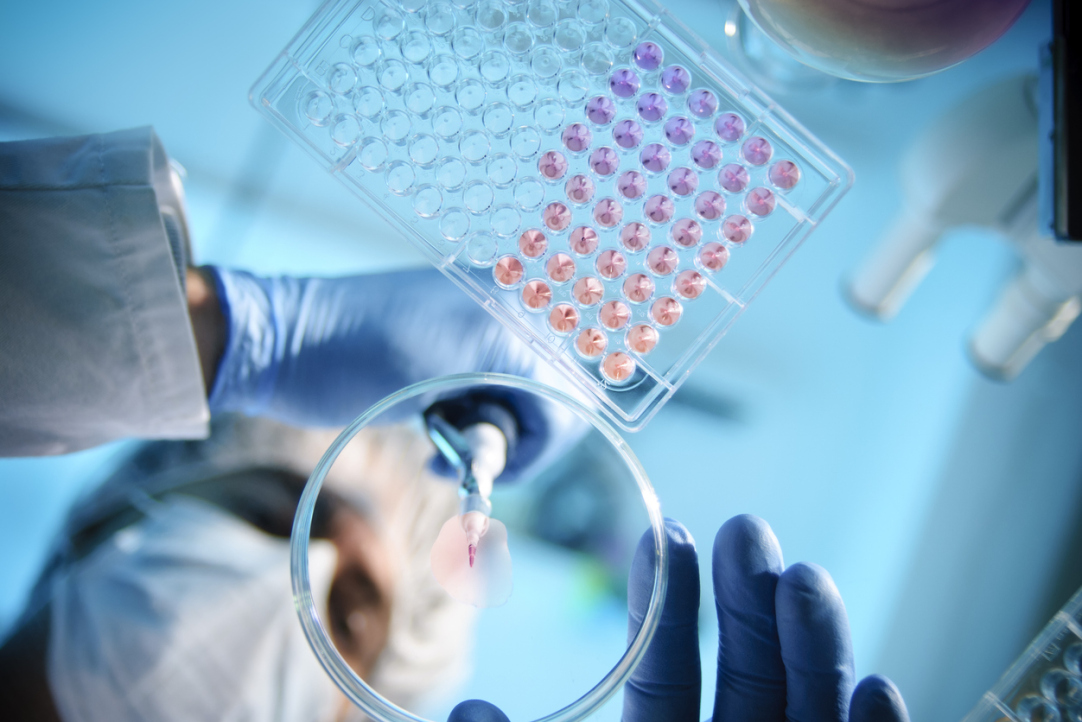
The market for biological products and their analogues is one of the most promising in the pharmaceutical industry. BRICS countries currently have great opportunities to develop this segment. The International BRICS Competition Law and Policy Centre at HSE University, together with the Institute of Chemical Technology, Mumbai, held a meeting of the BRICS Working Group for the Research of Competition Issues in Pharmaceutical Markets.
The event was held as part of the BioPharma track of the international exhibition ChemTECH World Expo 2024, one of the largest industry exhibitions in Asia. The discussion was organised with the participation of Russia’s Federal Antimonopoly Service, which co-chairs the Working Group along with the State Administration for Market Regulation of the People's Republic of China (SAMR).
The meeting in Mumbai was a continuation of the discussion that began last December in Skolkovo. Previously, it was decided to conduct a comparative analysis of the rules for introducing biotechnological products to the BRICS market.
This time, scientists and representatives of regulatory authorities and pharmaceutical business from BRICS countries gathered to discuss ways to improve access to biological products and biosimilars in alliance countries.
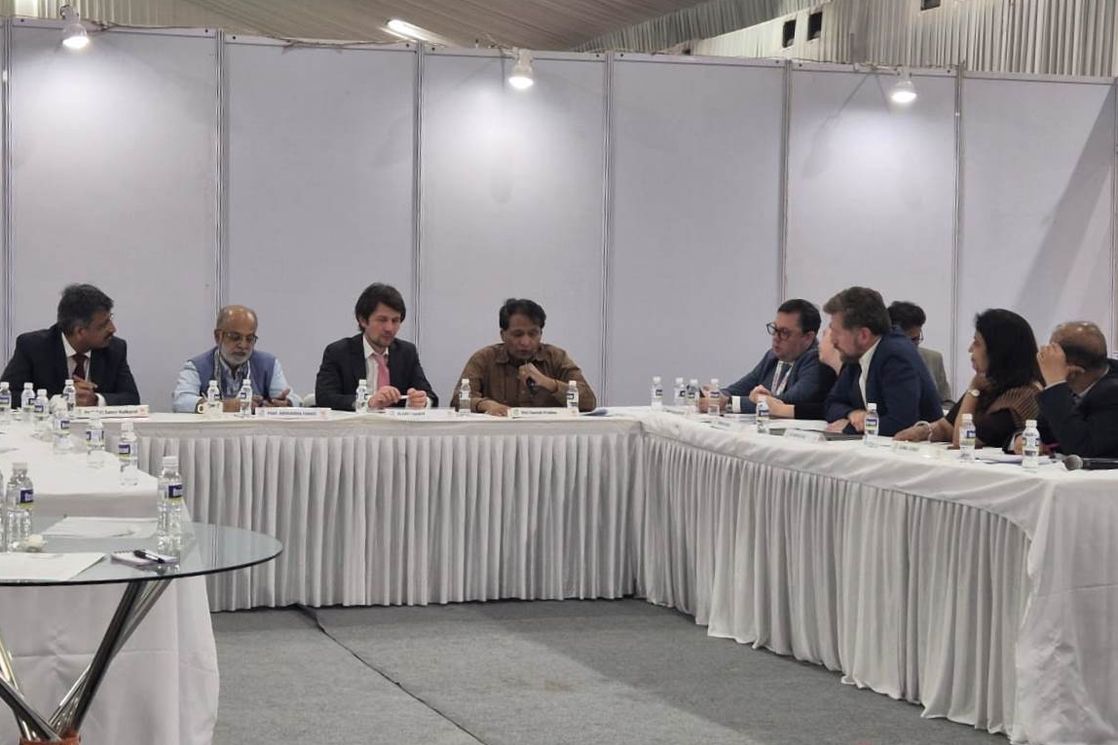
Biologics are a class of medicinal products obtained from living cells (blood, plasma, etc.) using biotechnology. Today, this is the most promising and rapidly developing segment of pharmaceuticals. However, their price is colossal due to the high technological complexity of production and the high cost of research and development. These are the most expensive medicinal products in human history: one dose can cost 3.5 million USD. This price is unaffordable for most patients. Therefore, regulatory authorities—both in the US and EU, and in BRICS countries—are focused on the task of introducing to the market and increasing the availability of generic biologics—the so-called biosimilars. Most often, such a measure leads to a multiple reduction in cost and a multiple increase in the availability of innovative biological products.

Suresh Prabhu
The event was opened by Suresh Prabhu, Founding Chancellor of Rishihood University, an Indian politician and public figure, who previously headed the ministries of civil aviation, railways, commerce and industry of India. Earlier, he noted that the world market for biosimilars will exceed 60 billion USD in turnover by 2030 and India has every chance to take a share of at least 10% in it. At the same time, he emphasised the importance of the cooperation process in the niche of biosimilars in the BRICS space and noted the significance of the BRICS Centre initiative in this discussion.
‘BRICS countries have sufficient capacity to combine their manufacturing and R&D capabilities to ensure access to biosimilars for patients both in BRICS countries and beyond. The market for biosimilars is growing and can effectively compete with existing manufacturers of biological products,' said Samir Kulkarni, co-moderator of the discussion, professor at the Institute of Chemical Technology in Mumbai.
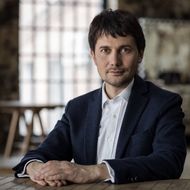
Alexey Ivanov
Director of the BRICS Centre, co-moderator of the event Alexey Ivanov spoke in regards to the research project, stating that the centre is working together with partners from India and other BRICS countries: ‘It is designed to develop ways to bring together the regulatory framework in BRICS countries in order to facilitate the access of biosimilars to markets and to assess the potential for creating the BRICS institutional platform that will facilitate joint research, development and production of biological products. A questionnaire for the pharmaceutical business was presented at the working group: the survey results will form the basis for the empirical part of the study.'
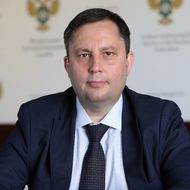
Timofey Nizhegorodtsev
Deputy Head of Russia's Federal Antimonopoly Service Timofey Nizhegorodtsev noted that 159 biotechnological products are currently registered in the Russian market. At that, biosimilars are registered for 38 international non-proprietary names, of which 30 are produced in Russia. Thus, Russia today is among the pioneers of the international biosimilar market.
‘It is necessary to change regulatory approaches to the development of biosimilars. It is clear that overburdened regulatory processes complicate and seriously increase the cost of producing biotechnological products and impede the timely launch of these products to the market. Optimisation of regulatory procedures is needed, but it is important to ensure consumer confidence in the quality, effectiveness, and safety of products,’ he emphasised.
The launch of biosimilars has already shown a multiple reduction in price. For example, the price of the original product Lenalidomide is 9,157 RUB, and the generic from the Indian manufacturer Hetero Labs costs only 350 RUB.
At the same time, it is important to find a balanced approach to pricing so that companies do not lose the incentive to engage in research and development, added Timofey Nizhegorodtsev.
‘If we lower regulatory barriers for biosimilars to enter the market, we must understand that we will face counter-criticism from international pharmaceutical holdings. These companies are already spreading rumours that medicines from BRICS countries are of poor quality, therefore, it is necessary to increase confidence in regulatory procedures while reducing barriers,' emphasised FAS Deputy Head.
Deputy Minister of Health of the Russian Federation, Sergey Glagolev, is confident that Russia needs more programmes for the development of biosimilars that meet the needs of Russian citizens, in particular, medicinal products in the sphere of oncology and orphan products.
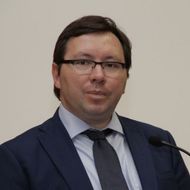
Sergey Glagolev
‘We should explore the possibilities of localising the production of biosimilars in countries with similar problems, which will allow us to exchange experience in this matter. I highly support the overall work involving EAEU regulators in improving the guidelines for regulating biosimilars, which will allow greater reliance on preclinical and early clinical data, and more balance between development time and guarantees of its safety,’ he explained.
Huang Yuwei, Official at the Antimonopoly Enforcement Department I, State Administration of Market Regulation of the People’s Republic of China, spoke about the measures that SAMR is taking to protect competition in the pharmaceutical market and create a fair market environment for the innovative development of biosimilars.
In 2018, the biosimilar market size in China was approximately 1.6 billion RMB. It is expected to reach 52.2 billion RMB by 2028. In recent years, SAMR has continuously strengthened the regulation of pharmaceutical patents in an effort to ensure fair competition in the market and respect people's interests. According to Huang Yuwei, at the end of last year, methodological recommendations were developed to regulate the market of biosimilars, which are already showing their high efficiency.
‘Financial problems arose in the biotechnology market in the USA and Europe after the economic crisis,’ said Andrey Ivashchenko, Chairperson of the Board of Directors, ChemRar group of companies. Due to insufficient funding, many projects where new molecules are at the preclinical testing stage have been suspended. ‘This is a good chance for companies from BRICS countries that want to develop their own innovative molecules,’ he emphasised.
Other participants of the discussion were Vice Chancellor of the Institute of Chemical Technology Aniruddha Pandit, Vice Rector of the Sirius University of Science and Technology Roman Ivanov, Deputy Director of CUTS International Ujjwal Kumar, Director of HiMedia Laboratories Vishal Warke, Associate Professor of the MVP Samaj’s College of Pharmacy Mrudula Bele, and Coordinator of the Health, Intellectual Property and Biodiversity Programme at South Centre Vitor Ido.
See also:
HSE Strengthens Cooperation with India and Creates Opportunities for Dialogue between Experts
Following the visit of the HSE University delegation to New Delhi, cooperation agreements with leading Indian universities were finalised. Similarly, a number of expert events, consultations and negotiations on the development of comprehensive strategic cooperation with Bharat took place. The HSE University delegation also participated in the Raisina Dialogue, one of the largest international expert forums.
HSE Hosts Round Table ‘Africa and BRICS: Reflections and Prospects’
On April 15, 2024 HSE University hosted a roundtable discussion ‘Africa and BRICS: Reflections and Prospects.’ The event featured leading experts from the South African Institute of International Affairs (SAIIA) Steven Gruzd and Gustavo de Carvalho and was moderated by HSE Vice Rector and Head of the BRICS Expert Council–Russia Victoria Panova.
Intellectual Property Issues in the Framework of BRICS Discussed at HSE University
On April 8, a roundtable discussion entitled ‘Intellectual Property on the Rise: How to Maximize Its Positive Impact and Avoid Hazards’ took place at HSE University in Moscow. The participants included Victoria Panova, HSE Vice Rector and Head of the BRICS Expert Council–Russia, andAlan Freeman, Co-Director of Geopolitical Economy Research Group at the University of Manitoba; Secretary of Geopolitical Economy Research and Education Trust; Co-Editor of Geopolitical Economy Book series, Manchester University Press.
‘The Goal of the Contest Is to Select Bold Ideas Aimed at Fostering a More Equitable Global Development’
HSE Vice Rector, Head of the BRICS Expert Council–Russia and Co-chair of the BRICS Civil Forum Victoria Panova, and Dean of the HSE Faculty of Humanities and Chair of the Contest Jury Felix Azhimov, announced the primary objectives of the contest, its format and potential participants during a press conference at TASS. Nationals from the BRICS countries, aged 18 to 45, are eligible to apply for participation in the contest. The jury will select ten winners, three of whom will be given the opportunity to attend the BRICS Civil Forum in Moscow in person.
‘We Have Promising Opportunities with Africa, and It Is Important to Foster Cooperation’
A Strategic Session focusing on cooperation between Russia and African countries in the sphere of higher education was held at HSE University's building on Pokrovsky Bulvar. The event was attended by representatives of HSE University, rectors of other Russian universities, and ambassadors and ministers of higher education from several African states.
BRICS Antimonopoly Authorities to Join Forces in Regulating Grain Markets
More than 70% to 80% of the calories we consume are derived from grain products. However, the global grain market today is dominated by a small group of traders. The HSE International BRICS Competition Law and Policy Centre has proposed establishing an intergovernmental BRICS platform on fair competition to serve as a new mechanism for coordinating the efforts of antimonopoly authorities in regulating global markets. This topic was discussed at an international seminar in Cairo.
HSE University Hosts the First Meeting of Russian NGO Representatives as Part of BRICS Civil Track
More than 50 representatives of non-profit organisations took part in the meeting, where they discussed the event plan for 2024 and thematic areas of activity of the working groups of the BRICS Civil Forum, scheduled to be held in Moscow in July 2024. The BRICS civil track’s operations are coordinated by the BRICS Expert Council–Russia.
BRICS Expert Council–Russia Launched at HSE University
The official presentation of the BRICS Expert Council – Russia has taken place at HSE University. The Council will be responsible for the information, analytical and expert support of the Russian BRICS Chairship 2024.
Experts from HSE University Explore Prospects for Carbon Farming in Kazakhstan
HSE University’s International BRICS Competition Law and Policy Centre and the university’s Centre for Technology Transfer, together with the International Institute for Applied Systems Analysis (IIASA, Vienna), have released a draft version of the research report ‘The Carbon Farming Industry in Kazakhstan: Unlocking Opportunities.’ Experts from the UN Convention to Combat Desertification and the Kazakhstan-based TALAP Centre for Applied Research also took part in the project.
‘Seeing Moscow Ranked First among the Cities of BRICS Countries Is Pleasant, but Not Surprising’
An international consortium of research organisations from China, India, and Russia, including HSE University’s Faculty of Urban and Regional Development represented by experts from the Vysokovsky Graduate School of Urban Studies and Planning and the Centre for Social Research and Technological Innovation (CITY), is developing an index of technological and spatial urban development (the Urban & Innovation Environment Index). Recently, a list of the top 10 largest cities of the BRICS countries was published on the project’s website. The Russian capital took the first place in the ranking, followed by Beijing, Shanghai, Sao Paulo, and Guangzhou.


